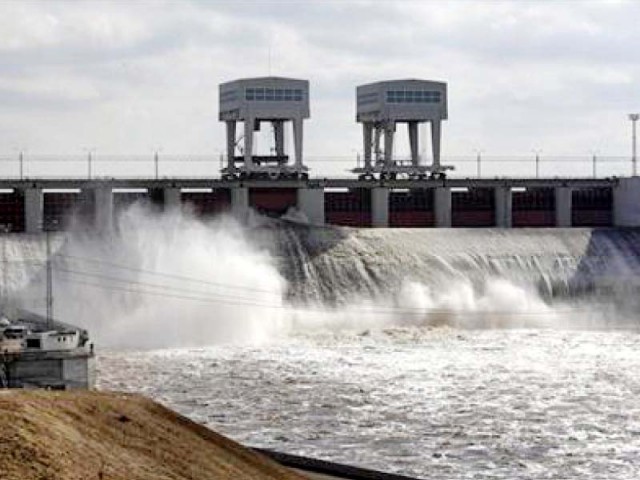
The 113th meeting of the Permanent Indus Commission was the first since India suspended dialogue under the 1960 Indus Waters Treaty following a militant attack on an Indian military base in Uri in September last year.
However, signalling a thaw in ties, India decided to hold talks under the treaty. The 10-member Indian delegation for the two-day talks was led by India’s Indus Water Commissioner PK Saxena. The agenda of the meeting included deliberations on Pakal Dul, Lower Kalnai and Miyar hydroelectric plants’ designs, flood data supply by India and programme of tours of inspection and meetings by Pakistan and India to the sites of their interest in the Indus basin.
Pakistan has been flagging concerns over the designs of five Indian hydroelectric projects: 1000MW Pakal Dul, 850MW Ratle, 330MW Kishanganga, 120MW Miyar and 48MW Lower Kalnai. The projects are being built or planned in the Indus river basin.
Speaking to the media at the conclusion of talks, Pakistan’s Indus Water Commissioner Mirza Asif Baig said: “The Indian side has agreed to halt progress and review the design of its 120-megawatt Miyar project.”
Water issues: Pakistan, India back at the negotiating table
According to a press release issued by the ministry of water and power, India had agreed to withdraw the design of Miyar hydropower project after Pakistan had made objections on it in the previous meetings of the commission. “India will share the new design with Islamabad before starting work on that project,” Baig said.
The press release added: “On the other two projects discussions are held on Pakistan’s prior objections relating to pondage and freeboard of Lower Kalnai and freeboard and spillway of Pakal Dul hydropower projects.
“[The] Indian side has agreed to re-consider Pakistan’s observations on these projects and will respond in the next meeting of the commission.”
“We also presented our objections over the designs of Pakul Dal [1,000 megawatts] and Lower Kalnai [48 megawatts] projects,” Baig said, adding that more talks on the controversial projects were likely to be held after three months in New Delhi.
Kishanganga and Ratle hydropower projects over which Pakistan was seeking International Court of Arbitration through the World Bank were not discussed. “Negotiations on these two projects would be held next month in the United States,” the Pakistan commissioner said.
The water and power ministry said the Indian side also agreed to a tour of inspection for Pakistan’s Indus Commission which is expected to be arranged before August 2017.
“Pakistan’s side demanded from India to provide outflows from Baglihar and Salal dams (on the Chenab Rivar) during flood season to issue flood early warnings,” the ministry’s press release said, adding, “[The] Indian side has agreed to consider Pakistan’s request and it is expected that India would start providing the required data starting from the coming flood season.”
The Indus Waters Treaty, brokered by World Bank, was signed by the then-president Ayub Khan and Indian prime minister Jawaharlal Nehru on 19 September 1960.
It administers how the Indus River and its tributaries would be utilised by the two countries. India governs the Beas, the Ravi, and the Sutlej while Pakistan governs the Indus, Chenab, and Jhelum rivers. However, India is allowed to use 20% of Indus water for irrigation, power-generation, and transportation.
The Permanent Indus Commission, a bilateral commission, implements, manages and solves the disputes arising over water sharing. It is mandatory for the commission to meet alternately in India and Pakistan at least once in a fiscal year.









1732549780-0/Speaker-Na-photo-22_04_2014-(1)1732549780-0-270x192.webp)







COMMENTS (4)
Comments are moderated and generally will be posted if they are on-topic and not abusive.
For more information, please see our Comments FAQ